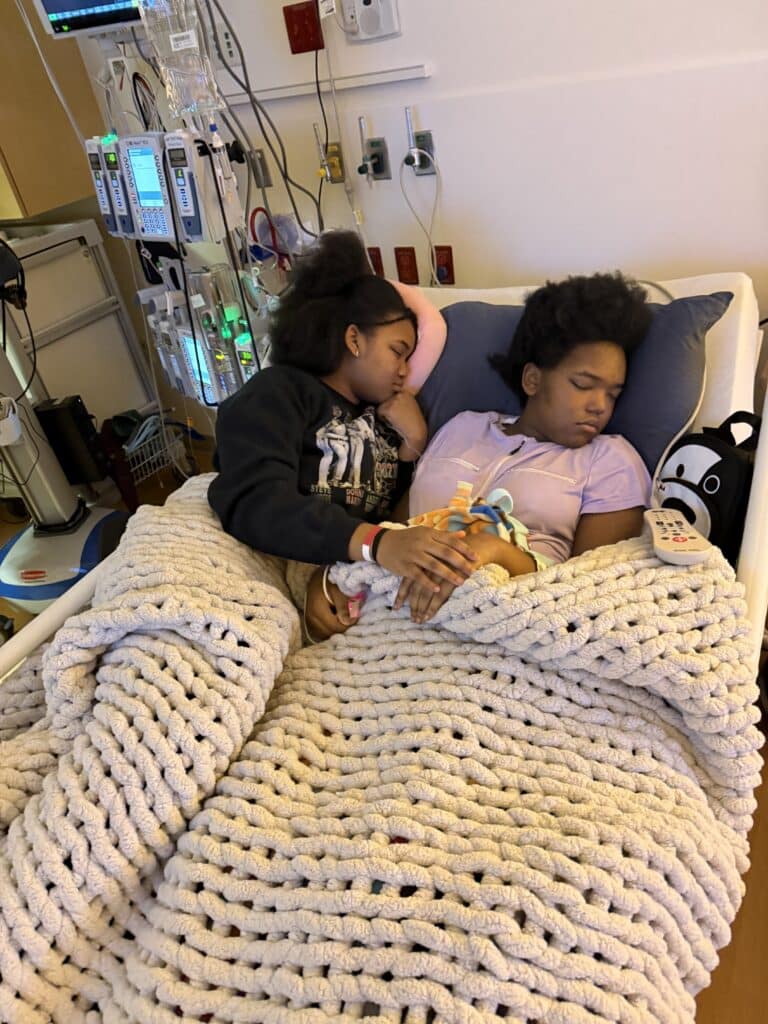Douglas Richmond’s case for early release from prison is relatively straightforward. He’s served six years on a first-time, nonviolent conviction, and has been eligible for parole since July 2023. He’s completed the two rehabilitation courses that were required of him and many more that he took voluntarily, including two that he now helps teach. He has had no disciplinary infractions or even verbal warnings, which is unusual. He has a job and a family waiting for him on the outside. The Tennessee Department of Correction (TDOC) has classified him as low-risk for recidivism. He spends most evenings playing guitar for church services at South Central Correctional Facility, the Core Civic-run prison where I’m also currently incarcerated.
In November 2023, the Tennessee Board of Parole denied his case and told him they’ll review it again in five years. This is the time period that’s expected these days, according to everyone I’ve spoken with at South Central.
In October, Richmond’s 14-year-old daughter Ionna was diagnosed with B-cell lymphoblastic leukemia. By Thanksgiving she’d been airlifted to a pediatric intensive care unit, where doctors medically induced a coma. Richmond’s wife, Jawanna, lost her job due to having to take so much time off. The hospital where Ionna will be for the duration of her treatment is about two-and-a-half hours from their home, so they need to relocate and have no means to do so. Even if the Board did decide to grant parole in 2028, Richmond’s family can’t afford to wait that long.
“It’s already a challenge raising your daughters and supporting them through a telephone line,” Richmond told Filter. “Knowing you’re release-eligible, and have done the things they’ve asked you to do.”
Douglas and Jawanna have written to the Board, the governor, TDOC administration and a string of legislators requesting compassionate release, but in Tennessee such a process doesn’t exist. And while there are a few pathways to early release from TDOC, none of them appear to consider urgent circumstances like what Richmond’s family is currently facing.
 Douglas and Jawanna Richmond
Douglas and Jawanna Richmond

Ionna Richmond and her sister, Loah Richmond, in November
Richmond’s 2023 parole denial was due in part to what a Board representative described to Filter as “substantial risk [he] would not conform to the conditions of release.” In early 2024 Richmond appealed this as being in error, since TDOC had classified his recidivism risk as low. After the appeal was dismissed he filed a civil suit against the Board, but the court dismissed it stating that he hadn’t properly verified his identity when submitting the documents.
After Ionna’s diagnosis he filed a motion to reconsider, attaching various medical records including a statement from their pediatric hematologist-oncologist that “parental involvement is imperative” to treatment. But the court upheld its decision.
In early November the Board suggested that Richmond petition for executive clemency, meaning plead his case to the governor. Board members screen the petitions and make recommendations, but ultimately the governor has final authority to issue commutations and end someone’s sentence early.
Richmond submitted that petition November 18. Board representatives told Filter on December 23 that the petition is currently under review. But clemency petitions, which encompass pardons and exonerations in addition to commutations, are reviewed in the order they’re received, and unlike some other states Tennessee has no process in place to expedite them. Jawanna was told it will be three to six months before they hear anything. Out of the hundreds of petitions for commutation filed each year, only a handful are granted.
A Board representative noted to Filter that Richmond could request a medical furlough, wherein he could be released temporarily to visit Ionna. But the chemotherapy regimen she’s begun is expected to take two-and-a-half years; the situation requires more than a visit.
Though rarely successful, in federal prisons requests for compassionate release can be made to the warden. The warden can then make a recommendation to the director of the Bureau of Prisons, similar to how the Board of Parole makes recommendations to the governor. But there is no state equivalent of this program for someone in Richmond’s position. TDOC Commissioner Frank Strada did not respond to Filter’s inquiry as to whether he would have the authority to grant Richmond some form of early release.
“Since finding out I have cancer, my life has been really scary and painful,” Ionna wrote to South Central Warden Grady Perry in November. “I have to go to the hospital a lot, and the treatments make me feel sick and tired. My mom is doing her best to take care of me, but I know it’s hard for her too. I miss my dad, and I know having him here would make me feel stronger and less alone.”
The family has received no response from prison administrators, despite sending multiple letters.
In my three decades of incarceration in Tennessee, I’ve known many people who took plea deals because they were led to believe they’d get parole long before they served the full sentence. What they are not told is how common it is for people to serve far more than the percentage of time they expected. The Board members, most of whom have backgrounds in law enforcement, are free to tell parole-eligible people like Richmond to come back every five years for the remainder of their sentence. There are no clear benefits to keeping Richmond in prison. There are clear benefits to letting him go home.
Images via Jawanna Richmond





Show Comments